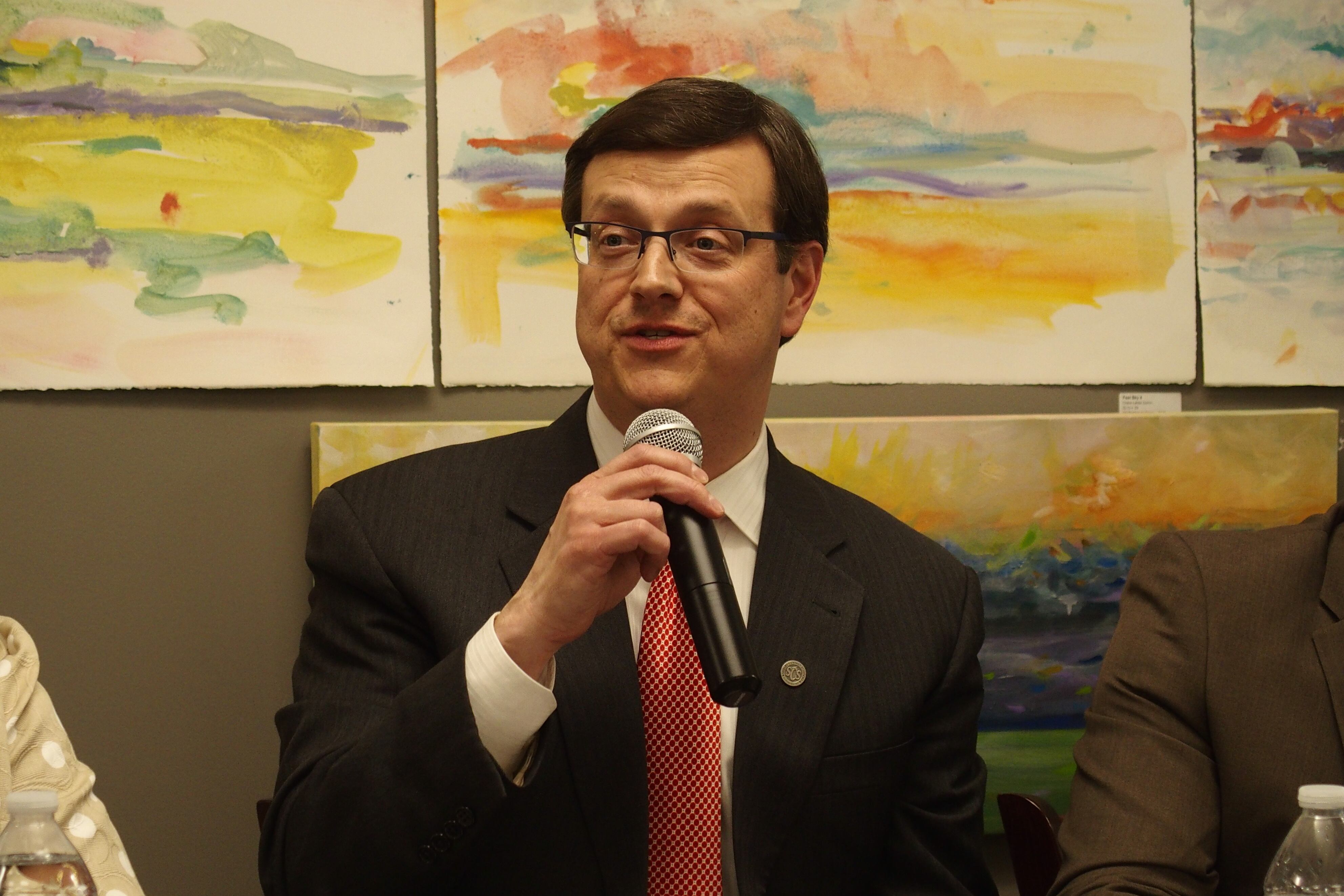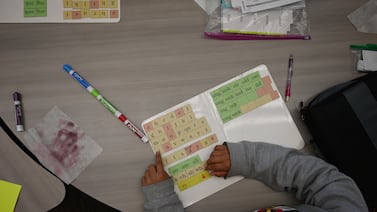A top Memphis-Shelby County Schools administrator has been put on paid administrative leave pending an investigation into an employee complaint.
The nature of the complaint against John Barker, deputy superintendent for strategic operations and finance, is unclear. In a statement shared with district employees and the media on Monday, interim Superintendent Toni Williams said the district investigates all complaints lodged against employees and would not comment further.
It is also unclear how long the inquiry will take. Until the investigation is resolved, Patrice Williams Thomas, the district’s chief of staff, will fill in for Barker.
Board Chair Michelle McKissack said Monday that Barker’s suspension was typical district protocol, and denied media reports that he was escorted off district property.
“This is not anything out of the ordinary or unusual,” McKissack said. “He acted accordingly when he was informed of it. There was no dramatic escorting out of the building. None of that.”
Barker could not be reached for comment.
Barker’s suspension comes nearly three weeks after Joris Ray agreed to resign as superintendent of MSCS. Ray was on paid administrative leave over claims that he abused his power and violated district policies. During the investigation, Barker and fellow Deputy Superintendent Angela Whitelaw were serving as acting co-superintendents.
Samantha West is a reporter for Chalkbeat Tennessee, where she covers K-12 education in Memphis. Connect with Samantha at swest@chalkbeat.org.







